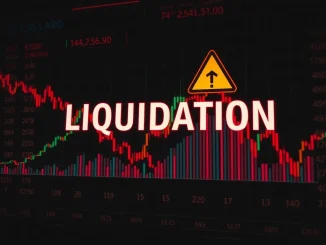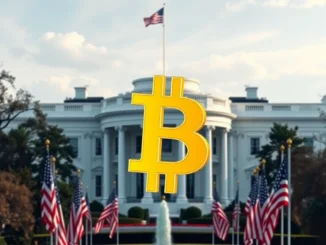
The cryptocurrency landscape in South Korea is taking a significant step towards enhanced safety and clarity. South Korea, a major player in the global crypto market, is implementing new guidelines to protect investors and ensure the stability of digital asset services. At the forefront of this initiative is the Digital Asset eXchange Alliance (DAXA).
DAXA Standards: Setting the Benchmark
The Digital Asset eXchange Alliance (DAXA), a collaborative body comprising major local crypto exchanges in South Korea, has officially established best practice standards for virtual asset service providers (VASPs). These standards are designed to improve two critical areas: system management and crypto customer protection. This move follows intensive collaboration with the Financial Supervisory Service (FSS), the nation’s financial watchdog, demonstrating a unified effort between the industry and regulators.
The development of these comprehensive DAXA standards originated from a dedicated task force launched by DAXA in February. This task force brought together experts from member exchanges and the FSS to deliberate and define clear guidelines that all VASPs operating in South Korea should adhere to. The goal is to create a safer and more reliable environment for trading and holding virtual assets.
What Do the New VASP Best Practices Cover?
While specific details of every standard were not fully outlined in the initial report, the focus areas provide a clear indication of the initiative’s priorities. The two main pillars are:
- System Management: This likely involves guidelines on the technical infrastructure of exchanges, ensuring robust security measures, stable trading platforms, and reliable data management to prevent system failures or breaches.
- Crypto Customer Protection: This is a vital aspect aimed at safeguarding users’ assets and information. It could include rules around transparent disclosure, handling of customer funds, dispute resolution mechanisms, and measures to prevent fraud and manipulation.
These VASP best practices are not merely recommendations; VASPs are expected to adapt their current processes to align with these new standards. The timeline for implementation is set for July, giving exchanges a defined period to integrate the necessary changes into their operations and systems.
Why is Crypto Exchange Regulation in South Korea Important?
Clear crypto exchange regulation is paramount for fostering trust and stability in the digital asset market. For South Korea, a country with high crypto adoption rates, establishing robust rules is essential to protect its citizens from potential risks associated with volatile and sometimes opaque markets. The collaboration between DAXA and the FSS on these South Korea crypto standards signifies a proactive approach to regulation, aiming to balance innovation with necessary oversight.
This initiative contributes to the broader global trend of regulators paying closer attention to the crypto space. By setting clear DAXA standards, South Korea is providing a framework that can enhance the credibility of its local exchanges and potentially attract more institutional participation by reducing regulatory uncertainty.
Ensuring Crypto Customer Protection
At the heart of these new standards is the focus on crypto customer protection. Users need assurance that their assets are secure and that the platforms they use operate with integrity and transparency. The DAXA standards are expected to lay down specific requirements that exchanges must meet to ensure customer funds are segregated, secure, and accessible. This is a critical step in building confidence in the virtual asset ecosystem.
Looking Ahead: Implementation in July
The upcoming July deadline for VASPs to apply these new standards marks a key milestone. It will be important to observe how smoothly exchanges adapt to the requirements and how effectively the FSS oversees the implementation. Successful adoption of these DAXA standards could serve as a model for other jurisdictions looking to enhance their own regulatory frameworks for virtual assets.
In conclusion, South Korea’s DAXA, in conjunction with the FSS, is taking a significant step forward by defining crucial best practice standards for its crypto exchanges. Focusing on system management and crypto customer protection, these new rules aim to create a safer and more reliable environment for the nation’s vibrant crypto market. As VASPs prepare to implement these changes by July, the industry watches keenly, anticipating a new era of enhanced regulatory clarity and user confidence in South Korea.



